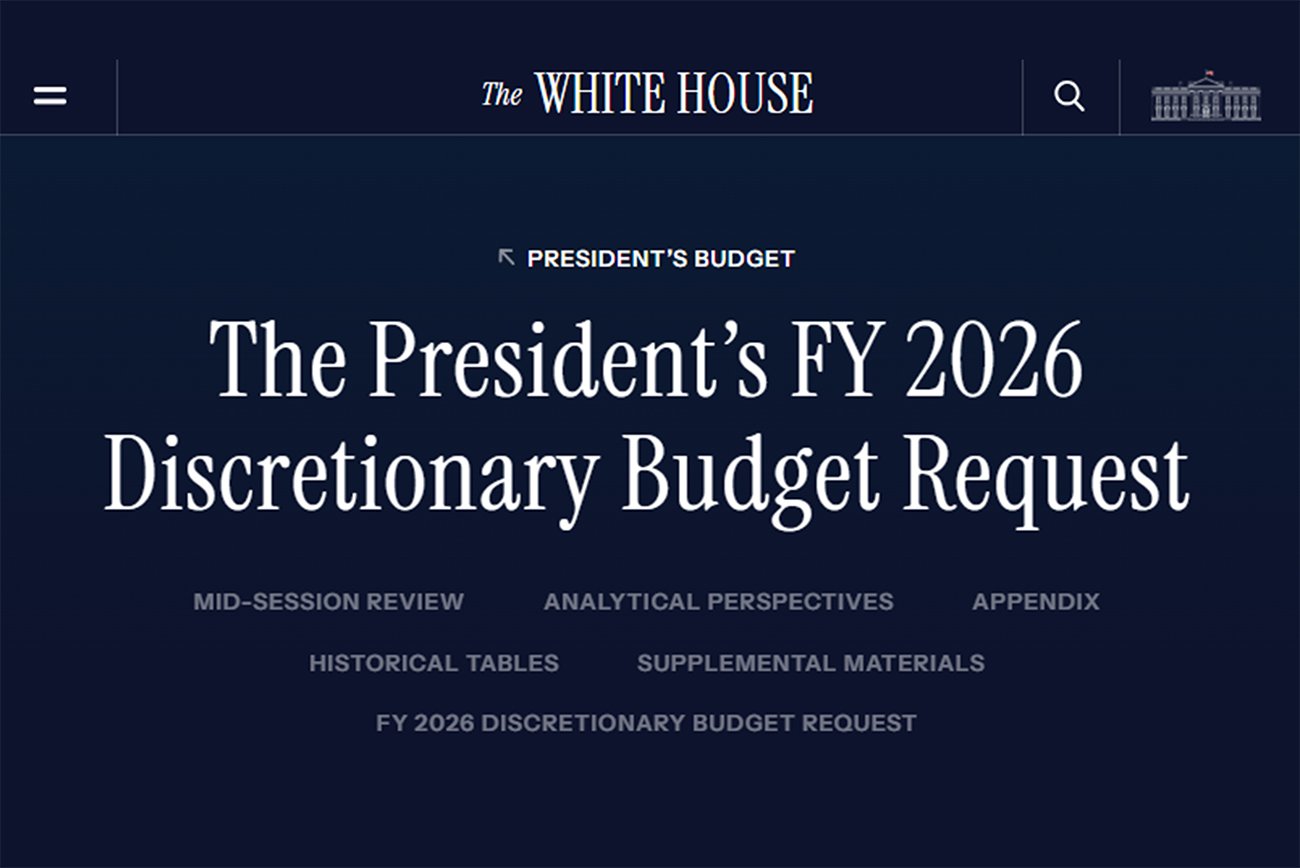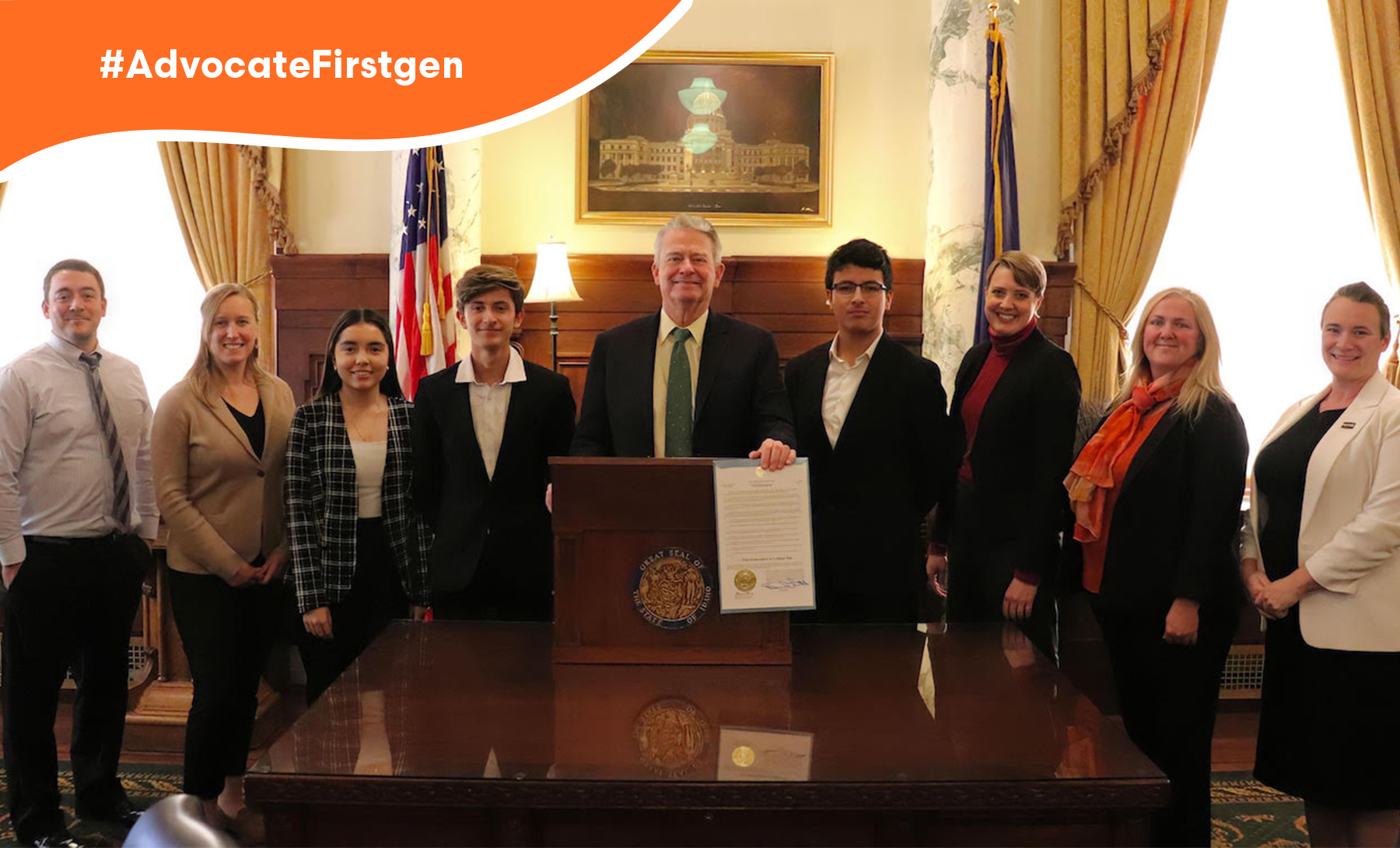On Friday, the Office of Management and Budget released an outline of President Trump’s proposed budget for fiscal year 2026—and the risks that it poses to continued first-generation student success are very real and substantial.
The proposal would eliminate Federal TRIO programs, GEAR UP, and the Child Care Access Means Parents in School (CCAMPIS) program. It also slashes Federal Work-Study funding by 80%.
These programs have been lifelines for millions of first-generation students, offering the support and resources necessary to access, afford, and succeed in higher education. If adopted, this proposal would do irreparable harm to pathways to economic mobility for millions of students across the country.
We can do something about this! FirstGen Forward has called on Congress to work with the White House to develop and enact a budget that supports first-gen students and their families. We urge you to join us in saving critical access initiatives that move us #FirstGenForward.
Understanding the Federal Budget Process
Though the president proposes a budget, Congress and the President must agree on what gets funded. The proposal goes to the House and Senate Budget Committees, then to the Appropriations Subcommittees, where the real decisions are made. This is where your voice can have the greatest impact.
How You Can #AdvocateFirstGen in the Federal Budget Process
The most powerful and effective way to influence the federal budget process is to tell your story—to show your members of Congress how the president’s proposed budget cuts impact you and your students and to convey to members what your students need to thrive.
Use Institutional Data
Data are the foundation of any effective advocacy strategy. Work with institutional research personnel to determine how many students benefit from TRIO, GEAR UP, CCAMPIS, or Federal Work-Study. Highlight how these programs boost gradation rates, employment outcomes, and economic mobility. If available, request comparative data to reinforce the argument that federal investments have improved student success metrics and employment outcomes.
Members are often deeply concerned with employment statistics, and colleges tend to be among the largest employers within members’ districts. Consider how the president’s proposed cuts would affect staffing at your institution and be prepared to discuss these economic impacts with your representatives.
Elevate Student and Alumni Stories
While data are persuasive, members of Congress are also moved by compelling personal stories. Help students and alumni prepare personal narratives that show how federal programs changed their lives.
Consider hosting storytelling-focused workshops to help students concisely communicate their experiences with federally funded programs. Video messages, written testimonials, and even live advocacy events can be extremely effective tools of persuasion.
Contact Your Members of Congress
Once you’ve gathered the relevant data and stories, you’ll want to share them with the appropriate parties in Congress.
- Find your representatives. Use the locator to find your representatives, as they are most likely to respond to the concerns of their constituents.
- Identify the right staffers. Find education staff contacts using this list, as these are the staff best positioned to share your concerns with members.
- Send a concise, powerful, respectful message. A few key components to the message include:
- Mention that you live/work in the member’s district;
- Make your ask early and clear (“I urge the Congressman to sustain Federal TRIO funding.”). You can view a sample here.
- Include one to two key data points or personal stories.
- Follow up. Once you send your message, you’re likely to receive an automated reply. If you don’t receive a substantive reply after a week, be sure to follow up to demonstrate that you’re passionate about this issue.
Identify other Key Targets and Allies
Contacting members of the House and Senate Appropriations Committees are crucial, but all legislators need to hear from their constituents. Those in the Congressional TRIO Caucus or who are themselves first-gen may be natural allies. Reach out and remind them what’s at stake.
Your advocacy is important, and your voice is powerful. We can work together to #AdvocateFirstGen and protect first-generation students, present and future, across the country.



